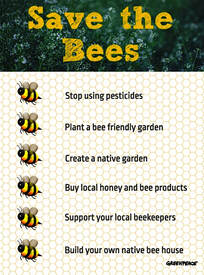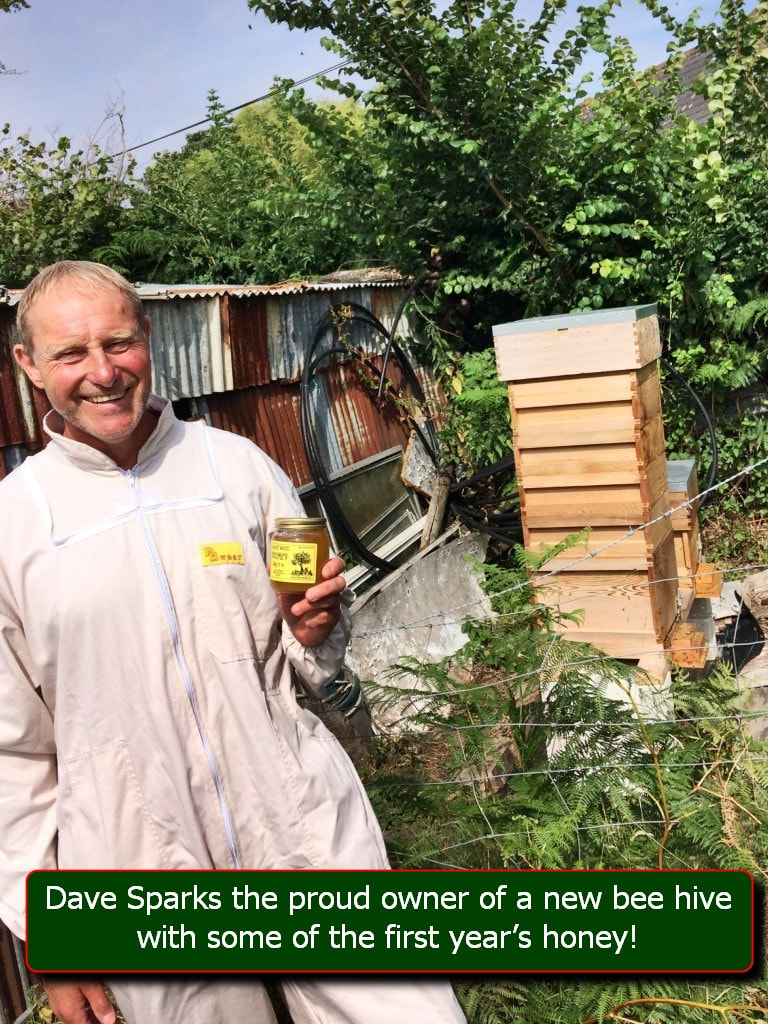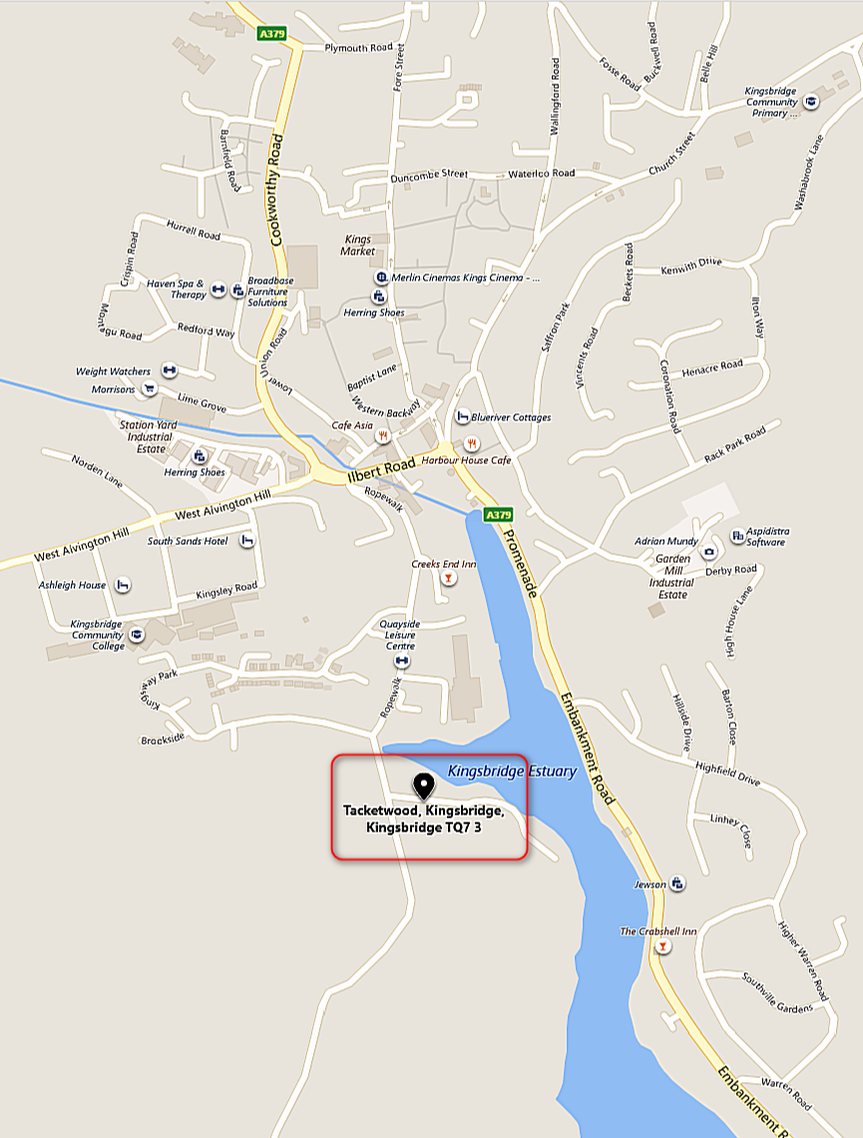Dave Sparks a local Bee-keeper
attributes success to Kingsbridge in Bloom.

After becoming interested in keeping bees, Dave Sparks completed a training course last year. He purchased his first nucleus hive early this year, which he keeps near Tacket Wood in Kingsbridge. (See map)
It's generally understood that the first year of a hive produces very little honey. However, Dave has so far, collected twenty pounds of honey. After discussions with experts locally about where and when bees forage, he has concluded that the impressive production from his hive is down to the thoughtful planting by Kingsbridge in Bloom volunteers.
Bees travel up to three kilometres in search of food. The area to one side of the hive is farmland with little on offer. In the opposite direction is the town where the bees are spoilt for choice!
It's generally understood that the first year of a hive produces very little honey. However, Dave has so far, collected twenty pounds of honey. After discussions with experts locally about where and when bees forage, he has concluded that the impressive production from his hive is down to the thoughtful planting by Kingsbridge in Bloom volunteers.
Bees travel up to three kilometres in search of food. The area to one side of the hive is farmland with little on offer. In the opposite direction is the town where the bees are spoilt for choice!
BEWARE - ASIAN HORNET THREAT! to our Bees - SEE HERE
The UK bee population
There are over 250 species of bee in the UK: 25 species of bumble bee, 224 species of solitary bee and 1 honey bee species. • Pollinators such as bees are estimated to be adding up to £600 million per year to the value of UK crops through increased yield and quality.
There are over 250 species of bee in the UK: 25 species of bumble bee, 224 species of solitary bee and 1 honey bee species. • Pollinators such as bees are estimated to be adding up to £600 million per year to the value of UK crops through increased yield and quality.



